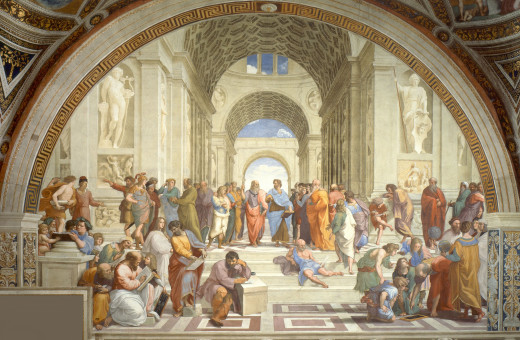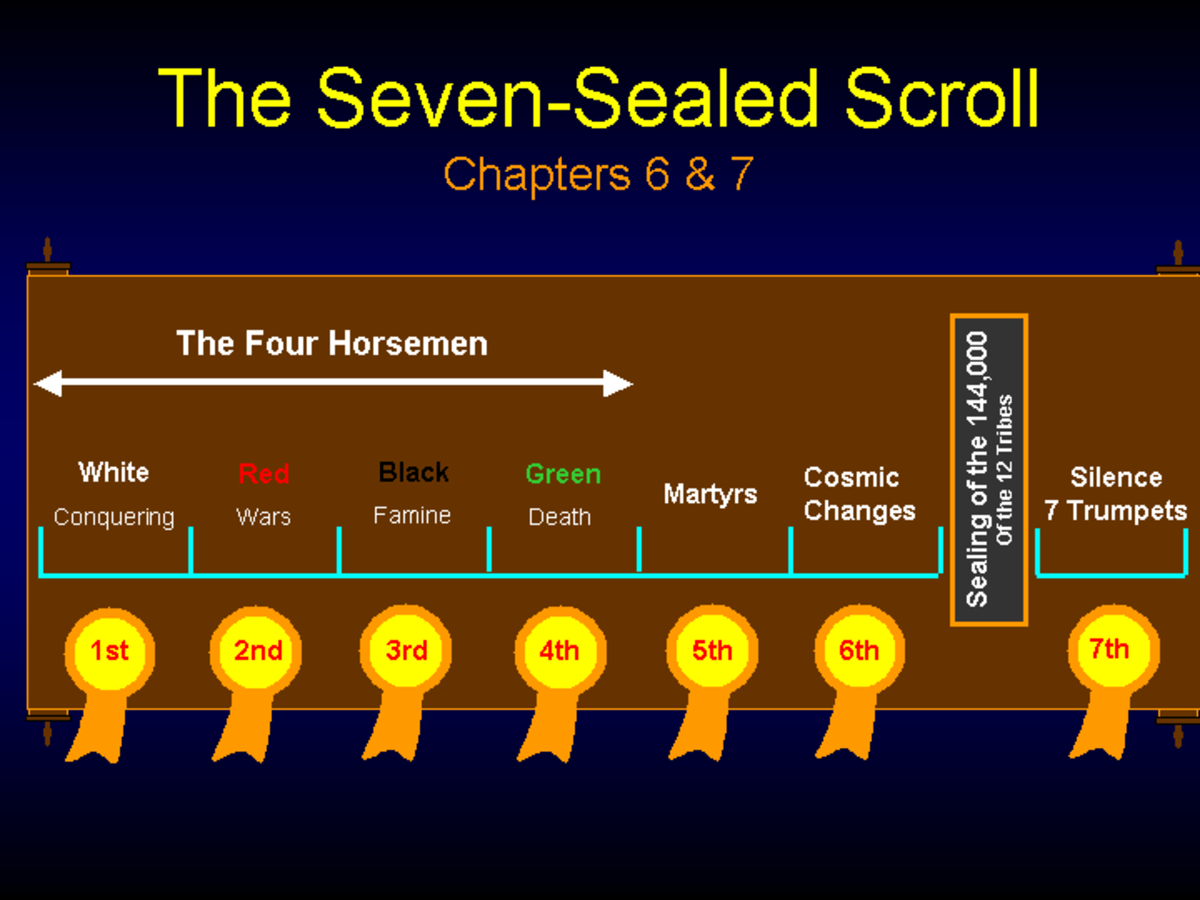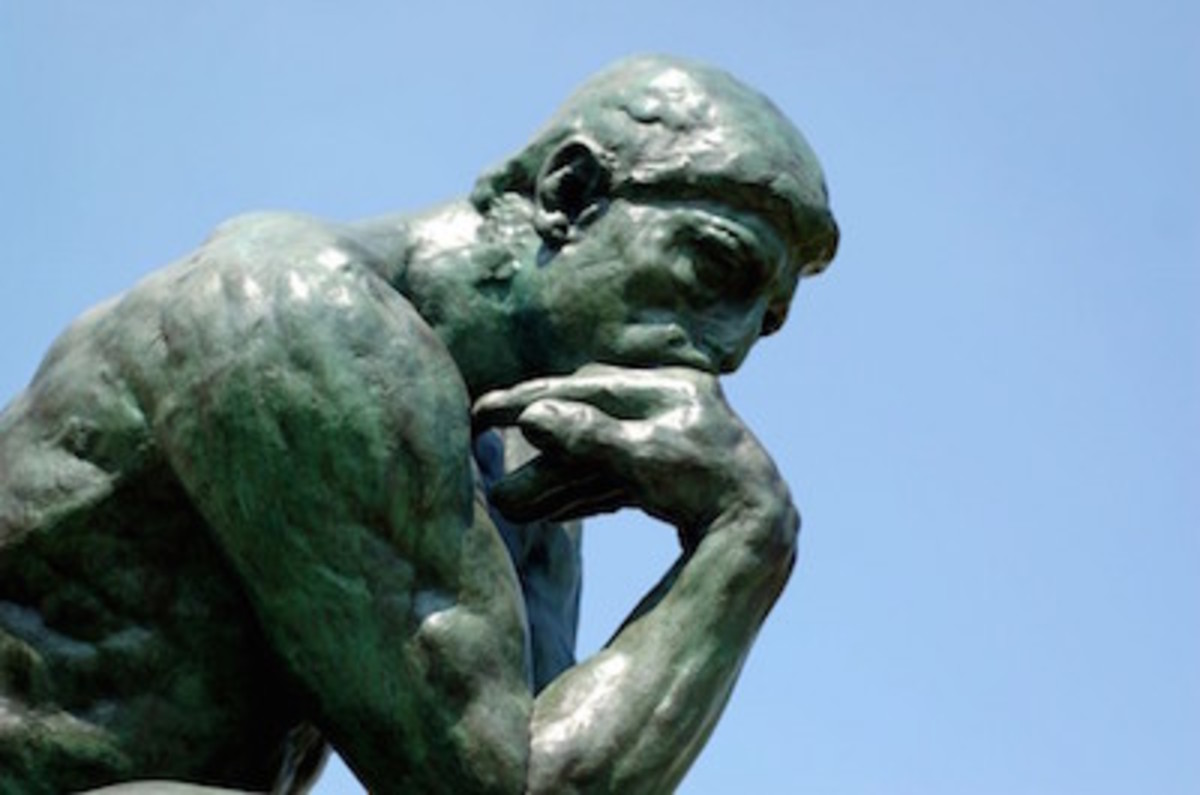Philosophy Simplified: Introduction and Table of Contents
'Philosophy is not a body of doctrine, but an activity.' - Wittgenstein
'Whoever does not philosophize for the sake of philosophy, but rather uses philosophy as a means, is a sophist.' - Schlegel
'Philosophy seems to me on the whole a rather hopeless business.' - Bertrand Russel
What is Philosophy?
When asked this question, I often answer:
"A bit of this, and a bit of that. It's basically nothing, but related to everything."
Philosophy has common topics with almost any other subject, while being a distinct subject itself. Originally meaning "love of wisdom", it now encompasses the studies of:
- Ethics
- Aesthetics
- Epistemology
- Logic
- Social, political and legal philosophy (philosophical anthropology)
- Metaphysics

So ... what's the point?
The point of philosophy is to approach these concepts with a rational, critical method of understanding. To find the right questions, but not necessarily their answer(s). For a simpler formulation, let us see Immanuel Kant's four questions. These really summarise what philosophy is about, and what guidance it could lend us in life.
- What can I know? (Epistemology)
- What should I do? (Ethics)
- What may I hope? (Religion)
- What is Man? (Philosophical anthropology)
In reality, philosophy is mostly "small talk between intellectuals". Philosophy gives birth to healthy discussions, while providing the foundations for all of the other studies, like logic for mathematics, aesthetics for arts and social philosophy for history and sociology. I consider it to be a fun subject to explore, with interesting ideas and people.
Yes, I'm in love with philosophy.
Proper Introductions
I'm going to begin with the concept of the Axial age, more specifically 6th century BC. Karl Jaspers (1883 to 1969, existentialism) coined the term axial age which refers to the cultural and philosophical peak/golden age between 800BC and 200BC.
In his book, titled The Origin and Goal of History he investigated the fact that most philosophical, scientific and cultural roots of our modern world originated from the axial age, and therefore it should be considered the starting point of modern history.
6th century BC saw the appearance of Gautama Buddha (563BC to 480BC), Laozi (BC571 to ??), Confucius (551BC to 479BC), Zarathustra (628BC to 551BC), the Hindu Upanishads (somewhere in 6th century BC), Prophet Jeremiah (approximates, 626BC to 587BC), Parmenides (515BC to 460BC) and Heraclitus (535BC to 475BC).
Coincident? Karl Jaspers thinks not, but whatever the truth is, it's empirical that in multiple corners of our dear Earth, culture-defining philosophers appeared out of thin air, and I consider this century to be the start of the history of philosophy. For some reason, people started to think. Started questioning their reality, their surroundings, the alpha and the omega.
And philosophy was born.
From this century onwards, we can easily distinguish between different periods of philosophy. I am going to write a distinct guide on each of the major eras, along with the topics I mentioned, and lastly, about the most famous philosophers and their personal views and ideas.
I'm going to write these articles one-by-one, so you may have to wait until I finish them up. Feel free to ask anything in the related articles, or add something I missed. I know that there are topics where I excel meaning that I'm pretty sure about what I write, but there are those topics that have much more devoted followers, Marx's philosophy for example.
For those who are already cracking their knuckles to correct me about class warfare and the bourgeois, these are mostly introductory descriptions to provide an overall image about the topics.
If you are interested, look up the philosophers I mention for the topics and read their works, there are some that are non-digestible for most (Kant, Nietzsche ...), but there are some works that could as well be entertaining works of literature (Kierkegaard, Bertrand Russel, ...).
Table of contents
- History of philosophy
- Greek philosophy
- History of eastern philosophy
- Hinduism
- Gautama Buddha and Buddhism
- Laozi and Taoism
- Confucius and Confucianism
- History of medieval philosophy
- Theology
- Arabian philosophy
- Differences in philosophy between Islam and Christianity
- History of Renaissance philosophy
- Back to Aristotle?
- Occultism
- History of early modern philosophy
- Rationalism
- Empiricism
- Philosophical roots of capitalism
- History of 19th century philosophy
- German idealism
- Philosophical roots of socialism
- Utilitarianism
- Existentialism
- Positivism
- Modern and Postmodern philosophy
- Professionalisation
- Analytic philosophy
- Continental philosophy
- Topics of Philosophy
- Epistemology
- Direct realism
- Indirect realism
- Solipsism and the Matrix
- Ethics
- Roots of ethics
- Universal rules
- Schools of ethics
- Aesthetics
- Definition of art
- Abstract art - is it really art?
- Logic
- Roots of logic
- Logical fallacies
- Induction
- Deduction
- Philosophical anthropology
- Philosophy of history (not to be confused with history of philosophy)
- Philosophy of politics
- Legal philosophy and ethics
- Metaphysics
- Philosophy of religion
- Arguments against and for the existence of a deity
- Afterlife
- Beforelife (the origins of our world)
- Determinism and free will
- Identity and personality
- Epistemology
- Famous philosophers
- Plato
- Idealism
- Allegory of the cave
- Rhetoric
- Aristotle
- Augustine of Hippo and Thomas of Aquino
- Theology
- Development of Christianity
- René Descartes
- Rationalism
- Cogito ergo sum
- Scientific revolution
- Arguments for the existence of a deity
- Francis Bacon
- Idolums
- Shakespeare question
- Immaniel Kant
- Rationalism and empiricism
- Kant's ethics and the rise of Prussia
- Karl Marx
- Socialism
- Progressivism
- Sociology
- Søren Kierkegaard
- Critique of rationalism
- Subjectivity
- Three life states
- Friedrich Nietzsche
- Death of god
- Will to power
- Eternal return
- Three metamorphoses
- Übermensch
- Critique of Christianity
- The last man
- Master and slave morality
- Ludwig Wittgenstein
- Philosophy of language, Linguistics turn
- Skepticism
- Logical positivism
- Plato
Community feedback
Please, do comment your opinion or critique on this collection of articles on philosophy. There's no way I can get better without feedback, and I always appreciate it.
© 2015 Medvekoma








